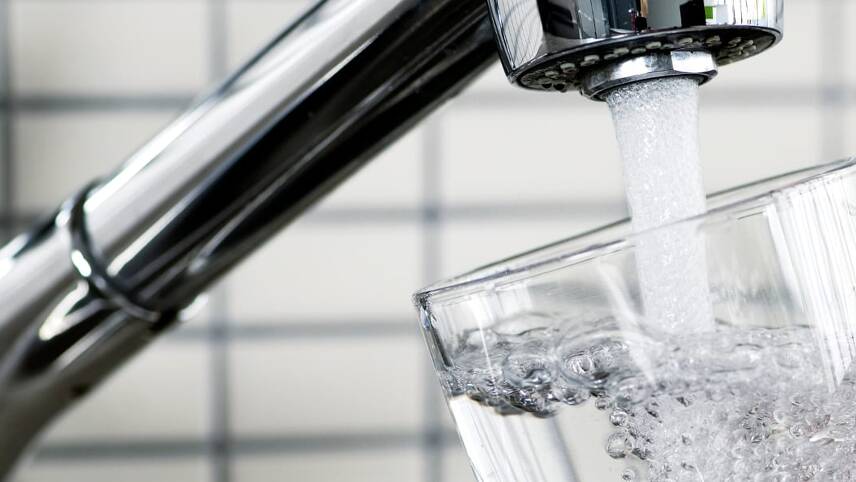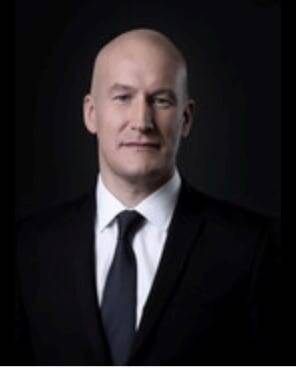This is the Sponsored paywall logged out

Andy Willicott joined South Staffs Water, incorporating Cambridge Water, as managing director in May and was immediately faced with demand spikes due to the warm dry spell and the lockdown. Having previously worked as chief operating officer at Sydney Water his experience of managing a water-stressed region is likely to be invaluable in facing the growing challenges of climate change.
Utility Week caught up with him to talk about the practicalities of enacting a business plan he didn’t write and what opportunities might emerge in the post-coronavirus world for the water sector.
 Willicott previously worked at South West Water and parent company Pennon Group, where his roles included customer services director, wastewater director and chief information officer, and most recently at Bristol Water, where he was transformation director.
Willicott previously worked at South West Water and parent company Pennon Group, where his roles included customer services director, wastewater director and chief information officer, and most recently at Bristol Water, where he was transformation director.
In between these positions Willicott spent a few years in Australia at Sydney Water. With climate change bringing the UK warmer, drier weather there is much to be learnt from countries that have battled drought conditions.
Although Willicott did not write the five-year plan he will be actioning, he is certain it is the right one for the company, its customers and the environment – especially in the current crisis.
“Our business plan is the right plan and it aligns with the current challenges we are facing,” Willicott says adding that the backdrop of the climate emergency and a shift in consumer habits during lockdown match the strategy.
The five outcomes the company is driving relate to:
- Water quality
- Ensuring secure and reliable supply
- Doing even more for customers and the community
- Minimising the business’ environmental impact – including lowering carbon
- And, doing it all in the most affordable way
Willicott says the guiding factors are society’s expectations for a responsible company relating to the green agenda and learning from coronavirus, which he believes has repositioned the sector in the public’s eyes after being recognised as key workers.
“I’m fortunate to be joining at the start of the AMP which means we can get the right traction on the plans,” he says. This will include the largest capital investment the company has ever seen with additional major investment at two water treatment plants at Hampton Loade and Seedy Mill treatment sites.
“We are really keen on completing these projects in such a way that we drive the green agenda effectively. We are looking at innovation such as ceramic technologies used around the world, how to reduce the use of energy and associated chemicals in the treatment process.”
The company is at the start of the capital design and delivery phase and intends to deliver it in a way that meets customer expectations and brings a focus to the perception of the value of water.
“The emerging value of water fits well with South Staffs Water’s strapline on vision and purpose that is to ‘make water count’,” Willicott says.
Making water count is key to two other areas that Willicott highlights as a focus for the business during this AMP cycle – leakage and lowering per capita consumption (PCC).
South Staffs Water has performed well on its leakage targets during AMP6 and has a commitment to drive it down further by 15 per cent by 2025 as well as reducing PCC in the South Staffs and Cambridge regions respectively.
The company has active campaigns to lower household consumption including its Pledge 15 drive, which shows billpayers what 15 litres of water amounts to and what they can do to save that much each day.
“We need to work harder at promoting and educating customers to do that,” Willicott says, “Which links back to my experience in Australia, because that’s the norm there. When you go through drought periods of six or seven years it placed very strict restrictions across the sector for the past 20 years. There’s a behaviour seen overseas that we don’t have here yet, so there’s an opportunity for education but also to hold the mirror up to ourselves and see that we are doing the same.”
Growing awareness and interest in the environment coupled with people spending more time at home during lockdown means there is an opportunity to influence and educate people to make behavioural changes around their consumption.
“It comes down to education, but it isn’t just about using less water. During lockdown people have reconnected to wildlife with the quieter levels of traffic. If we can educate customers to consume water in a different way because they appreciate the value of it in non-financial terms, then I really think the current climate allows us to realise a change that maybe we had never seen before.”
Improving leakage is one area the company is looking to explore in Ofwat’s innovation competition.
Although too early in the process for finalised ideas, South Staffs Water is looking at products to do in-situ pipe repair and laying pipes that are more resilient to certain environmental factors as we see climate patterns change. Pipework that is resilient to ground condition shift could improve leakage levels further.
He believes the competition’s success will rest on widespread participation.
“These things can be difficult to get off the ground but it’s clear we are looking for transformational innovation and to do that we have to be able to collaborate,” Willicott says. “Maybe recent events will encourage the sector to collaborate more – with the supply chain, with partners and other companies, but it will only work if we all engage with the framework.”
Looking ahead, one area where Willicott is keen to drive change – as well as improving leakage and lowering PCC – is around customer service, of which he was director at South West Water. He says the industry excels in its use of telemetry within water networks and at treatment sites to understand supply and demand or notice problems, but when it comes to customers all too often it is down to the billpayers to get in touch.
He wants to move away from relying on customers to be the ones to make contact and aim for more open communication when problems occur.
“Often when customers contact us it’s either to pay a bill or to tell us that something isn’t right. If we can communicate with them first then, in this day and age, that’s definitely where we should be and what we will aspire to do at South Staffs Water.”
Please login or Register to leave a comment.